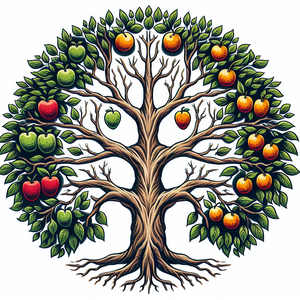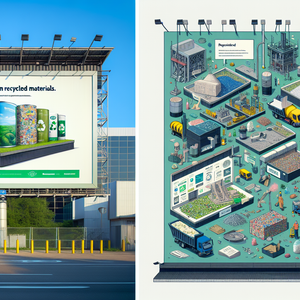Culinary Creatives: Austin's Food Startups

At the heart of Austin's culinary scene lies the food truck revolution. These mobile kitchens have transformed how residents and visitors experience food, providing diverse, high-quality options at accessible prices. Notable food trucks like Veracruz All Natural have gained a loyal following for their authentic Mexican fare, crafted with locally sourced ingredients. Their tacos and breakfast offerings are a must-try for anyone visiting the city. Similarly, East Side King, known for its inventive Asian-inspired dishes, exemplifies the creativity that characterizes Austin’s food truck culture. The flexibility of food trucks allows chefs to experiment with new ideas and menus without the financial burden of traditional restaurant overhead. This model fosters a sense of community, as many food trucks converge at popular parks like South Congress Food Truck Park, where patrons can savor a variety of culinary delights in a lively atmosphere. Events such as Austin's Food Truck Festival showcase this collaborative spirit, bringing together local food entrepreneurs and highlighting the city's rich culinary diversity.
Tech Meets Taste: The Rise of Food Tech Startups
In addition to traditional culinary ventures, Austin is home to a burgeoning food tech scene that leverages technology to enhance the dining experience. Startups like Fooda have revolutionized how people access meals at work. By partnering with local restaurants, Fooda provides rotating lunch options that cater to busy professionals seeking convenient and delicious meals. This innovative approach not only streamlines lunch breaks but also supports local eateries. Another key player is Ateriet, which specializes in food photography and content creation for restaurants and brands. In an era where high-quality visuals are essential for attracting customers, Ateriet helps food businesses stand out in a crowded digital marketplace. These tech-driven solutions exemplify the potential for technology to transform the culinary landscape, enhancing customer engagement and operational efficiency.
Sustainability and Local Sourcing
Sustainability is a cornerstone of many food startups in Austin, reflecting a growing consumer demand for eco-friendly practices. Businesses like Tiny Boxwoods prioritize farm-to-table dining, sourcing ingredients from local farms and emphasizing seasonal menus. This commitment to sustainability not only appeals to environmentally conscious consumers but also supports the local economy and community. The Austin Food Business Alliance is an initiative dedicated to promoting sustainable practices among food entrepreneurs. By providing resources and support, the alliance fosters a culture of responsibility and innovation, encouraging businesses to reduce their environmental impact. This collective effort not only enhances the local food scene but also sets a positive example for other cities striving to promote sustainability in their culinary ecosystems.
Cultural Fusion and Culinary Diversity
Austin's culinary startups are a reflection of the city’s rich and diverse cultural landscape. From Tex-Mex and barbecue to Asian fusion and vegan cuisine, the variety of offerings showcases the myriad influences that shape Austin's food culture. For example, The Beer Plant combines the city's craft beer scene with gourmet vegan dishes, catering to the growing demographic of health-conscious consumers without sacrificing flavor. Events like the Austin Food & Wine Festival celebrate this culinary diversity by bringing together chefs and food lovers to explore new flavors and techniques. Such gatherings not only elevate local startups but also foster a sense of community and collaboration among food entrepreneurs, reinforcing Austin's reputation as a gastronomic hub.
Austin's food startup scene is a vibrant and evolving landscape that reflects the city's innovative spirit and cultural diversity. From food trucks that redefine casual dining to tech-driven solutions that enhance the culinary experience, these businesses are at the forefront of a culinary revolution. As sustainability and local sourcing continue to gain importance, and as cultural fusion becomes increasingly celebrated, Austin’s food entrepreneurs are well-positioned to lead the way in shaping the future of food.
Food Truck Operations Manager
Local food truck businesses, culinary startups, and food festivals
Core Responsibilities
Oversee daily operations of food trucks, including scheduling, inventory management, and staff training.
Ensure compliance with health and safety regulations, including food handling and sanitation practices.
Develop and implement marketing strategies to promote the food truck and increase customer engagement.
Required Skills
Strong organizational and leadership abilities.
Experience in the food service industry, particularly in mobile operations.
Knowledge of food safety regulations and operational efficiency.
Culinary Marketing Specialist
Food tech startups, restaurants, and culinary agencies
Core Responsibilities
Create and execute digital marketing campaigns that showcase culinary offerings and engage target audiences.
Develop content for social media platforms, focusing on visually appealing food photography and storytelling.
Collaborate with chefs and restaurant owners to highlight unique dishes and seasonal menus.
Required Skills
Proficiency in social media marketing and content creation.
Strong understanding of food trends and consumer behavior in the culinary space.
Experience with tools like Adobe Creative Suite for graphic design and photography.
Food Sustainability Consultant
Non-profits focused on sustainability, local farms, and food startups committed to eco-friendly practices
Core Responsibilities
Assess and advise food businesses on sustainable sourcing practices and waste reduction strategies.
Develop sustainability initiatives that align with local regulations and community standards.
Educate food entrepreneurs on the benefits of eco-friendly practices, including cost savings and consumer appeal.
Required Skills
Expertise in environmental science or sustainable food systems.
Strong analytical skills to assess business practices and suggest improvements.
Excellent communication skills for presenting findings and recommendations.
Food Tech Product Manager
Food tech startups, software companies specializing in food service solutions, and culinary innovation labs
Core Responsibilities
Lead the development of innovative food tech solutions, from concept through launch, ensuring alignment with market needs.
Collaborate with cross-functional teams, including engineering, marketing, and culinary experts, to refine product offerings.
Analyze user feedback and market trends to drive continuous improvement and product iteration.
Required Skills
Experience in product management, particularly within the food tech or hospitality sectors.
Strong project management skills and an ability to work in a fast-paced environment.
Familiarity with culinary trends and technology integration in food services.
Food Content Creator and Influencer
Food brands, restaurants, and media companies focused on culinary content
Core Responsibilities
Produce engaging video and written content centered around food, cooking techniques, and local culinary experiences.
Build and maintain a personal brand that resonates with food enthusiasts and consumers.
Collaborate with restaurants and food brands for promotional campaigns and sponsored content.
Required Skills
Strong storytelling and visual communication skills, particularly in food photography and videography.
Knowledge of social media platforms and trends in the food influencer space.
Ability to engage with audiences and create a community around culinary passions.


